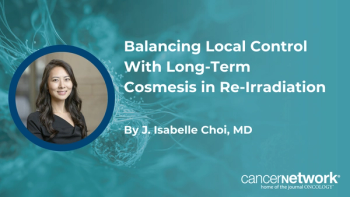
New Genetic Mutations Linked to Breast and Ovarian Cancers
Researchers have discovered new associations between breast and ovarian cancer and genes that had not been previously detected, and which may help guide treatment decisions in the future.
A recent large analysis has found several new associations between breast and ovarian cancer and genes that had not been detected previously in studies with smaller sample sizes. The new findings, which were
The researchers analyzed a panel of 25 genes associated with increased risk of breast or ovarian cancer in approximately 7% of women tested through a large commercial laboratory. Depending on the gene, they found increased risk between 2-fold and 6-fold for breast cancer and 2-fold and 40-fold for ovarian cancer.
The researchers note that previous studies have implicated single nucleotide polymorphisms (SNPs) located at the CCDC170/C6ORF97-ESR1 locus (6q25.1) as being associated with breast cancer risk. However, the researchers in this current study took a different route and used a genome-wide differential allele-specific expression (DASE) approach. They found that genetic alterations of CCDC170, but not ESR1, account for previously reported breast cancer risk at this locus.
Study investigator Michael Hall, MD, associate professor of medicine in the Department of Clinical Genetics at Fox Chase Cancer Center, Philadelphia, Pennsylvania, said the study shows whether the risk associated with a given gene mutation is high or low, which will help guide treatment decisions.
“Improved technology and increased access have made it possible to identify a broader range of genetic mutations associated with increased cancer risk, but it has been difficult to separate risk associated with mutations and risk conferred by strong family history,” said Dr. Hall. “Our study shows whether the risk associated with a given gene mutation is high or low, which will help guide decisions about whether medical intervention is warranted.”
The researchers conducted complementary analyses on a real-world sample of more than 95,000 women with and without cancer. Dr. Hall said as more patients with cancer and at risk of cancer get access to genetic testing, it will become possible to gain a more comprehensive view of which genes have an impact on cancer risk and how large those risks are. He said some genetic mutations will necessitate increased screening; however, others may be low enough that standard prevention and monitoring will be appropriate.
Newsletter
Stay up to date on recent advances in the multidisciplinary approach to cancer.











































